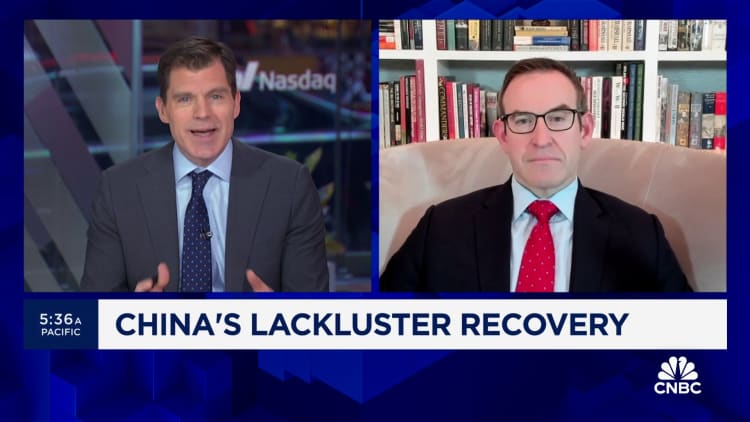China’s manufacturing activity shrank for the fourth straight month in January

China’s factory activity contracted for a fourth consecutive month in January, underscoring the much-needed litany of policy support for the world’s second-largest economy which Beijing announced last week.
The official manufacturing purchasing managers’ index rose slightly to 49.2 in January from 49 in December, according to data from the National Bureau of Statistics released Wednesday. It was in line with the median forecast in a Reuters poll.
The official non-manufacturing managers’ index rose to 50.7 in January from 50.4 in December, according to NBS. Strength in the country’s services industry helped offset weakness in the construction sector amid a slump in the real estate sector.
A PMI reading above 50 indicates expansion in activity, while a reading below that level points to a contraction.

Of the five sub-indexes for the manufacturing PMI, new orders marginally increased, though production jumped 1.1 percentage points.
Employment for both non-manufacturing and manufacturing sectors edged lower in December.
The business activity index for the construction industry, included as part of the non-manufacturing PMI, stood at 53.9 a decrease of 3.0 percentage points.
Pan Gongsheng, the People’s Bank of China governor, unexpectedly announced last week a cut in the amount of liquidity that banks are required to hold as reserves.
Later that day, Beijing released a fresh policy mandate aimed at easing the cash crunch for Chinese developers, which have struggled under the crackdown on the sector’s bloated debt.
The property market slumped after Beijing clamped down on developers’ high reliance on debt for growth in 2020, weighing on consumer growth and the broader growth in the Chinese economy.
The PBOC has said there’s room for further monetary policy easing. Reducing the reserve requirements that banks must maintain will increase the capacity for lenders to extend loans and spur spending in the broader economy.
This is a developing story. Please check back for more updates.
Nhận xét
Đăng nhận xét